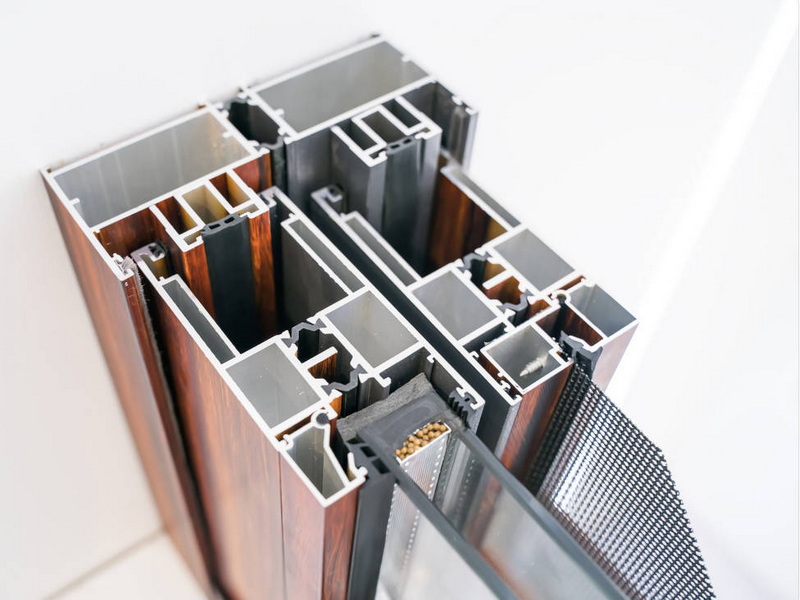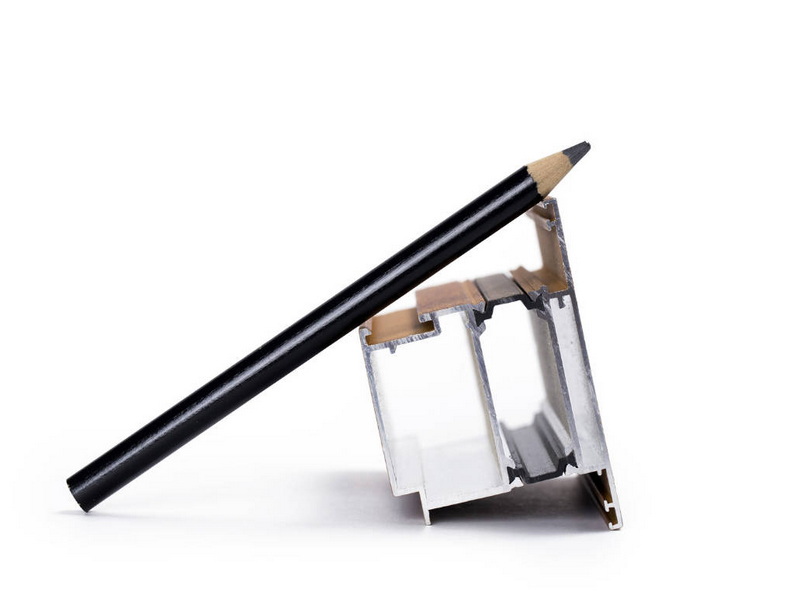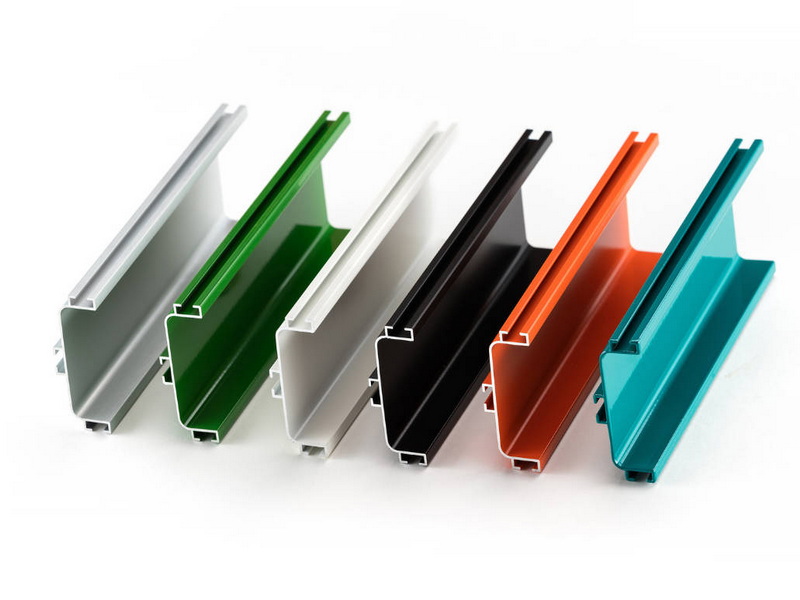English 




Views: 222 Author: Astin Publish Time: 2025-03-24 Origin: Site



Content Menu
● Understanding Aluminium L Profiles
>> Material Composition and Properties
● Benefits of Using Aluminium L Profiles
>> Versatility and Customization
>> Lightweight
>> Thermal and Electrical Conductivity
● Applications of Aluminium L Profiles
● Customization Options for Aluminium L Profiles
>> Finishes
● FAQ About L Profile Aluminum
>> 1. What are aluminium profiles?
>> 2. What are the advantages of aluminium profiles?
>> 3. Are aluminium profiles sustainable?
>> 4. Where can I buy aluminium profiles?
>> 5. What types of aluminium profiles are available?
Aluminium L profiles, also known as L-shaped aluminium profiles or aluminium corners, are versatile and widely used extruded aluminium products characterized by their 90-degree angle shape. These profiles are essential components in various industries due to their unique combination of properties, including a high strength-to-weight ratio, corrosion resistance, workability, and recyclability. This article explores the design, benefits, applications, and customization options for aluminium L profiles, providing a comprehensive understanding of their significance in modern construction and manufacturing.

The defining feature of an l profile aluminum is its L-shape, formed by two legs that meet at a right angle. These legs can be of equal or unequal length, offering versatility in design and application. The l profile aluminum design provides inherent strength and stability, making it suitable for supporting loads and withstanding lateral forces.
l profile aluminum are typically made from aluminium alloys, which offer a range of beneficial properties. Aluminium's natural corrosion resistance, resulting from a protective oxide layer that forms on its surface, makes l profile aluminum ideal for outdoor and harsh environments. The strength-to-weight ratio of aluminium is also a key advantage, allowing these profiles to provide significant structural support without adding excessive weight.
Despite being lightweight, l profile aluminum exhibit high strength and durability. The aluminium alloy from which they are made contributes to their ability to support heavy loads and withstand environmental stressors. This makes them a reliable choice for both construction and manufacturing applications.
Aluminium's natural resistance to corrosion is a major benefit, particularly in outdoor or high-moisture environments. l profile aluminum do not rust or degrade when exposed to the elements, ensuring longevity and reducing maintenance costs.
l profile aluminum can be easily customized to meet specific project requirements. They can be cut, drilled, welded, and formed into various shapes and sizes. Additionally, they can be finished with powder coating or anodizing to enhance their appearance and provide added protection.
The lightweight nature of aluminium makes l profile aluminum easy to handle and transport, reducing labor costs and simplifying installation. This is especially beneficial in construction projects where weight is a concern.
l profile aluminum offer excellent thermal and electrical conductivity, making them suitable for applications such as heat sinks, electronic enclosures, and other components requiring efficient heat transfer.
Aluminium is a highly recyclable material, making l profile aluminum an environmentally friendly choice. Recycling aluminium requires only a fraction of the energy needed to produce new aluminium, reducing the carbon footprint of projects that use these profiles.

l profile aluminum are used across a wide range of industries due to their versatility and beneficial properties.
In the construction industry, l profile aluminum are commonly used for:
- Framing and structural support in buildings and infrastructure projects
- Roofing and cladding systems
- Window and door frames
- Edge protection for tiles and other materials
Their lightweight nature, durability, and corrosion resistance make them ideal for both structural and decorative applications.
The automotive industry utilizes l profile aluminum for:
- Vehicle bodies and chassis components
- Door and window frames
- Heat exchangers and cooling systems
The high strength-to-weight ratio of aluminium helps improve fuel efficiency and performance, while its corrosion resistance ensures longevity.
In the aerospace industry, l profile aluminum are used in:
- Aircraft frames and structural components
- Interior elements
- Fastening systems
The lightweight and high-strength properties of aluminium are critical in aerospace applications, where weight reduction is essential for fuel efficiency and performance.
l profile aluminum are used in the electronics industry for:
- Heat sinks for dissipating heat from electronic components
- Enclosures and mounting brackets
- Electromagnetic shielding
Their thermal conductivity and ability to be easily shaped make them ideal for these applications.
l profile aluminum are increasingly used in furniture manufacturing for:
- Modern and sleek designs
- Shelving and support structures
- Trim work and decorative elements
The versatility and aesthetic appeal of aluminium make it a popular choice for contemporary furniture designs.
l profile aluminum can be manufactured in a wide range of sizes, thicknesses, and lengths to meet specific project requirements. This flexibility allows for both small, lightweight profiles for decorative purposes and larger, heavy-duty profiles for structural applications.
Various finishes can be applied to l profile aluminum to enhance their appearance and durability. Common options include:
- Powder Coating: Provides a smooth, durable finish that is resistant to chipping, fading, and corrosion. It can be customized in a wide range of colors.
- Anodizing: Creates a protective and decorative layer on the surface of the profile, offering added resistance to wear, scratches, and UV radiation. Anodized finishes are available in various colors.
- Raw/Mill Finish: Showcases the natural beauty and texture of the aluminium material, providing a slightly rough and matte appearance.
In addition to standard sizes and finishes, l profile aluminum can undergo special processing to meet unique project needs. This may include:
- Cutting to specific lengths
- Drilling and micro-drilling
- Shearing
- Milling
- CNC machining
- Bending
- Calendering
l profile aluminum are highly versatile and essential materials in modern construction and manufacturing. Their unique combination of strength, lightweight nature, corrosion resistance, and customization options makes them suitable for a wide range of applications across various industries. From providing structural support in buildings to enhancing the performance of vehicles and electronic devices, l profile aluminum continue to play a crucial role in enabling innovation and advancing technology. As industries continue to seek durable, sustainable, and versatile materials, the demand for l profile aluminum is expected to grow, further solidifying their importance in the global market.

Aluminium profiles are aluminium components available in various shapes and sizes, widely used in industrial manufacturing as construction profiles.
Aluminium profiles are lightweight, robust, corrosion-resistant, and easy to assemble, making them ideal for a wide range of industrial applications.
Yes, aluminium profiles are eco-friendly and 100% recyclable, making them a sustainable choice for industrial applications.
Many suppliers offer a wide range of high-quality aluminium profiles, which can be conveniently ordered online or through distributors.
Aluminium profiles are highly versatile and available in a variety of shapes and sizes, including T-profiles, H-profiles, l profile aluminum, and U-profiles, each offering solutions for numerous applications across different industries.
[1] https://www.jiahexinsteel.com/a-the-versatility-of-aluminium-l-profile-a-comprehensive-guide.html
[2] https://www.gm-al.com/a-exploring-the-benefits-of-l-shaped-aluminium-profiles.html
[3] https://www.jiahexinsteel.com/a-the-versatility-of-l-type-aluminium-profiles-a-comprehensive-guide.html
[4] https://www.maunsystem.de/en/aluminum-profile/
[5] https://www.gm-al.com/a-understanding-the-versatility-of-aluminium-l-profile-a-comprehensive-guide.html
[6] https://www.profall.com/en/blog/l-shaped-aluminum-profile-a-versatile-extrusion-for-all-sectors
[7] https://www.aluminumetal.com/a-exploring-the-versatility-of-aluminium-l-profile-a-comprehensive-guide.html
[8] https://www.laticrete.com/en/products/l-shape-edging-profile-made-of-aluminum-ls1
[9] https://proaksmetal.com/detail-l-profile/
[10] https://www.gm-al.com/a-structural-strength-and-style-exploring-the-benefits-of-l-shaped-profile-aluminium.html
[11] https://profiledecor.com/types-of-aluminium-profiles/
[12] https://www.aluminiumwarehouse.co.uk/blogs/news/why-are-aluminium-angle-profiles-important
[13] https://www.factorled.com/en/aluminum-profiles-led/3642-aluminium-profile-2-metres-angular-90%C2%BA-l-for-led-strips-8435612913486.html
[14] https://www.mdpi.com/2073-4360/15/5/1137
[15] https://jmaluminium.com/exploring-the-world-of-aluminium-extrusion-profiles-what-they-are-and-how-theyre-used/
[16] https://insights.made-in-china.com/Overview-of-the-Aluminium-Profile-Industry_AfpaOwEvvnHg.html
[17] https://www.aluminium-online.co.uk/aluminium/aluminium-angle/unequal-angle/
[18] https://newsourcecorp.com/what-are-the-different-aluminum-extrusions-profiles/
[19] https://starext.com/frequently-asked-questions-about-aluminum-extrusions
[20] https://www.panduit.com/en/products/signs-labels-identification/labels-markers-printers/metal-marker-plates-tags-machines/mmp350h-mal.html
[21] https://www.profall.com/en/blog/profall-s-h-shaped-aluminum-extrusions
[22] https://www.comhan.com/en/products/aluminium-profiles-standard
[23] https://www.tuli-shop.com/blog/aluminium-profile-load-capacity.html
Top Aluminum Furnitures Manufacturers and Suppliers in Czech Republic
Top Aluminum Furnitures Manufacturers and Suppliers in Poland
Top Aluminum Furnitures Manufacturers and Suppliers in Belgium
Top Aluminum Furnitures Manufacturers and Suppliers in Finland
Top Aluminum Furnitures Manufacturers and Suppliers in Denmark
Top Aluminum Furnitures Manufacturers and Suppliers in Greece
Top Aluminum Furnitures Manufacturers and Suppliers in Portugal
Top Aluminum Furnitures Manufacturers and Suppliers in Austria
Top Aluminum Furnitures Manufacturers and Suppliers in Norway
Top Aluminum Furnitures Manufacturers and Suppliers in Sweden
